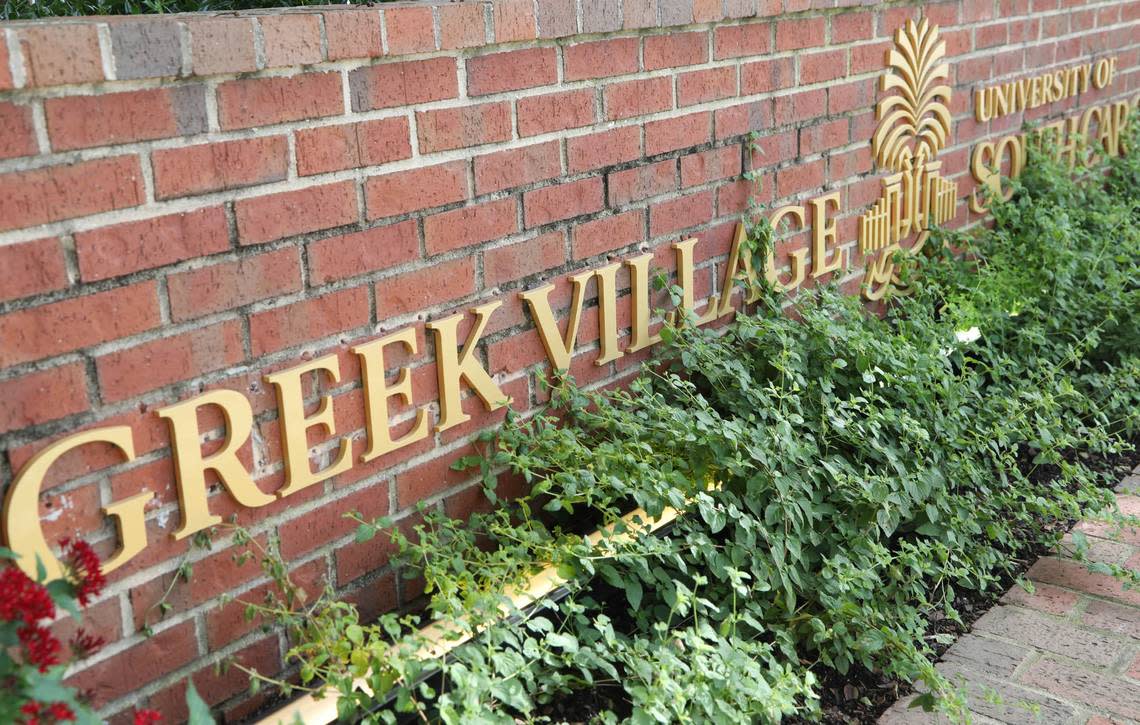‘Disgusting’: Incident report describes hazing that got USC fraternity kicked off campus

Two bottles of liquor were taped to University of South Carolina fraternity pledges’ hands. One pledge was tied to a tree. Some students were vomiting, and at least one was unconscious.
Those allegations against the Theta Delta Chi fraternity are included in a Greek life incident report filed in October with the university. The fraternity was already on probation for hazing when the allegations were filed. After the university investigated, the fraternity was barred from USC’s campus.
The incident report says pledges were subjected into public embarrassment and forced binge drinking.
Hazing is categorized as “violent conduct,” according to university policy. It is defined as an act associated with being a member of a student group and an act that endangers a person’s physical health and safety or mental well-being.
The State obtained the report through a Freedom of Information Act request.
The report says the Office of Student Conduct received an email about a Sept. 20 off-campus incident in which fraternity members taped bottles of liquor to the hands of pledges and made “them drink it all,” according to the report.
The report also referenced photographs of a scavenger hunt Theta Delta Chi made its pledges do, which were attached to the original report. USC did not include these photos in The State’s information request. However, the scavenger hunt was described as “sexually explicit” in previous reporting by The Daily Gamecock, USC’s student newspaper.
“I hope this information will help put an end to this fraternity and their disgusting acts against others before it’s too late,” the email read.
The office then followed up with a phone call.
The informant reiterated what she had shared in the email, according to the report. She said that along with being forced to drink alcohol, pledges were unconscious and vomiting and one was tied to a tree. They were then forced to come back the next morning to “clean it all up.”
According to the report, six pledges had already dropped Theta Delta Chi.
It was not the first time the informant had heard of “these things” and said she was “extremely concerned for (redacted) safety.” She said she also reached out to Theta Delta Chi’s headquarters.
The police were contacted about the incident, but no arrests were made, according to the report. It is unclear whether the allegations in the report were substantiated.
USC has suspended Theta Delta Chi for four years. The organization cannot officially operate on campus until Nov. 4, 2026.
Theta Delta Chi’s central fraternity office, which is located in Boston, could not be reached for comment.
Five other fraternities at USC — Kappa Sigma, Phi Delta Theta, Pi Kappa Alpha, Kappa Alpha Order and Phi Kappa Sigma — were put on conduct probation last semester, according to the university’s Leadership and Service Center. Charges against those five included hazing concerns, alcohol violations, lying to the university and failure to follow event policies. A sixth fraternity, Chi Psi, was charged with failure to comply and was given educational sanctions.
Probation means that the groups have limitations on what they are allowed to do, university spokesman Jeff Stensland previously told The State.
Punishment is determined on an individual basis, Stensland said, and is often based on the violation, the evidence and the nature of the allegations.
“The rules that are in place for organizations and their members are in place to protect the safety and well-being of the students,” Stensland told The State. “Hazing by definition jeopardizes safety and well-being. It’s not tolerated at the university.”
Since February, three more fraternities were investigated for hazing, including Pi Kappa Phi, Pi Kappa Alpha and Chi Psi. They were ultimately charged with failure to comply and are on probation until January 2024.
Connor Hart, vice president of conduct for USC’s Interfraternity Council, could not be reached for comment.
The U.S. Department of Education estimates that more than half of college students involved in groups experience hazing. Much of this is associated with Greek life.

